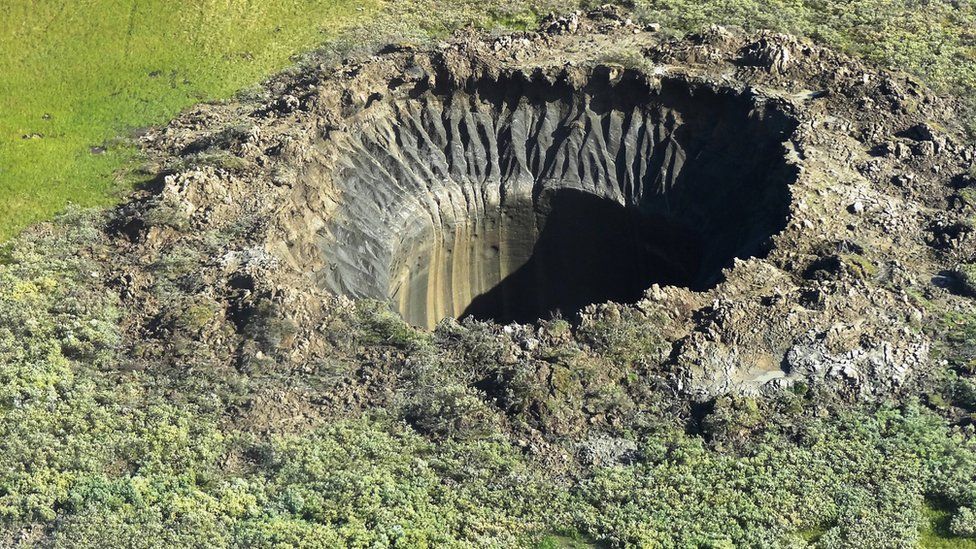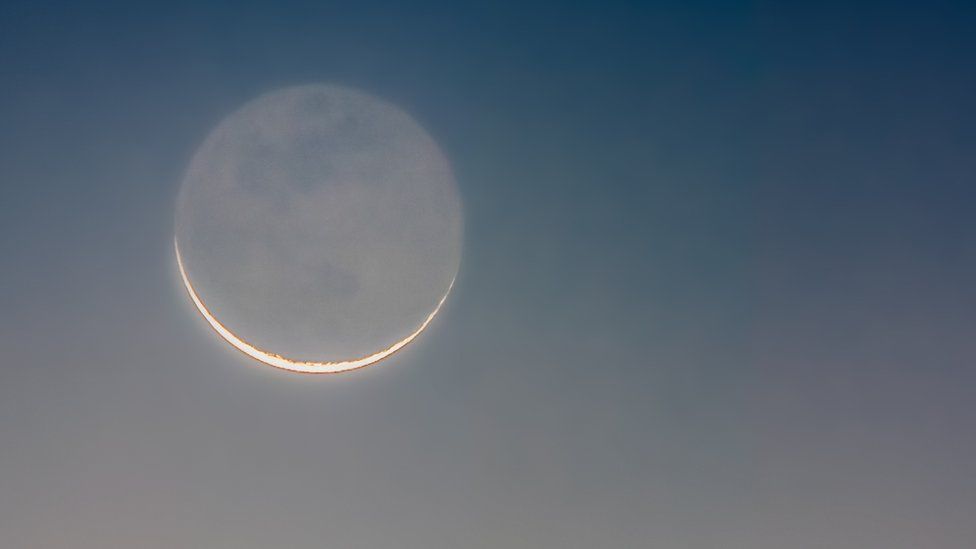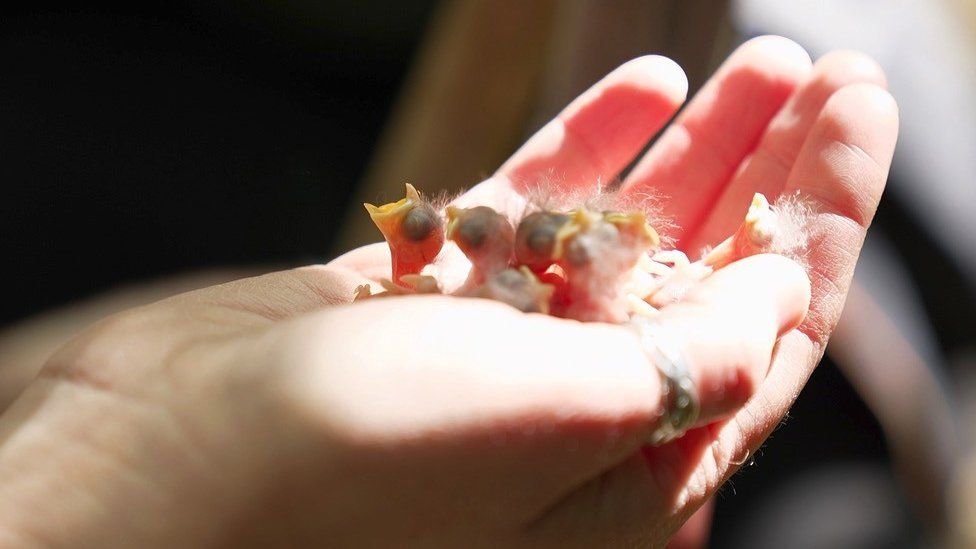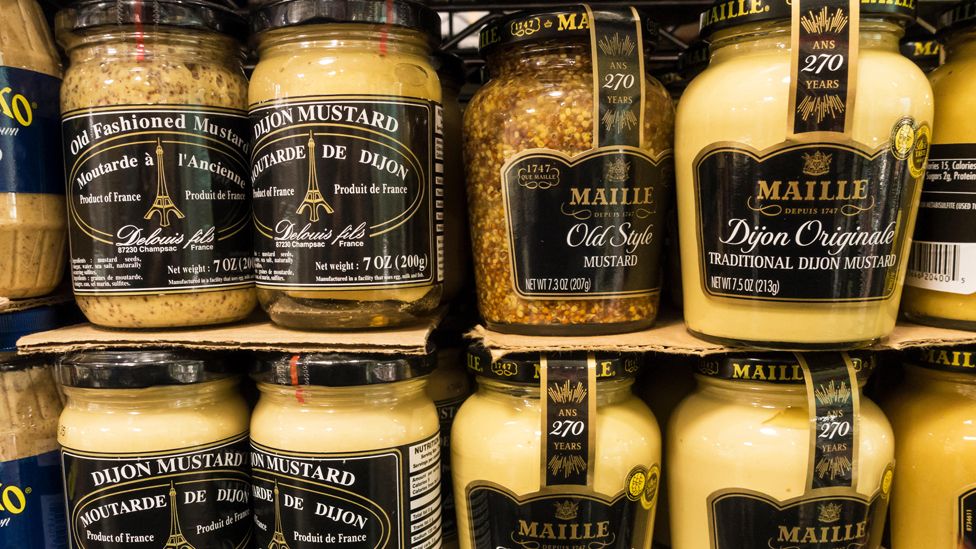 Getty Images
Getty ImagesBirdsong, snowdrops, blossom and midge bites – these are not things you associate with November in the north of England.
But these are just some of the milder side effects of a warming world.
As well as fuelling deadly floods and drought, rising temperatures are cited as a cause of spontaneous explosions of Siberian permafrost, mustard shortages and the planet becoming dimmer.
Many of the impacts of climate change are devastating. Some are weird.
Exploding tundra and ‘earthshine’
Giant craters in thawing Siberian permafrost have been attributed by some Russian scientists to warmer ground temperatures causing underground pockets of gas to spontaneously explode. Permafrost is defined as land that has been frozen continuously for more than two years.
It’s only one hypothesis to explain the formation of giant craters in the Arctic landscape.
As this BBC Future article highlighted, they are a “disquieting sign” that this cold, largely unpopulated landscape at the north of our planet is undergoing some radical changes.
Recent research also showed that the Arctic is warming even faster than previously thought – four times faster than the rest of the world.

And as well as blasting holes Earth’s wilderness, climate change could also be dimming the planet’s “shine”, according scientists at Big Bear Solar Observatory in New Jersey.
By measuring the sunlight reflected from Earth to the dark part of the moon at night, scientists measured what they call “earthshine” or albedo – basically Earth’s reflectiveness.
The studies suggested that the amount of low cloud cover over the eastern Pacific Ocean is reducing due to warming ocean temperatures.
Since these clouds act like a mirror, reflecting light from the Sun back into space, without them that reflected light diminishes. So, according to these scientists, we might actually be taking the shine off our little blue dot.
Sex-changing reptiles
While we might be causing global warming, we’re not the only species experiencing it. Some creatures are affected in truly surprising ways.
In some reptiles, the sex of offspring is partly determined by the temperature at which the eggs are incubated. Genetically male central bearded dragons – a species of lizard found in Australia – will actually change from male to female when they are incubated over a certain temperature. So scientists are concerned that males could become increasingly rare as the world warms – putting the species at risk of extinction.
In the ocean, rising levels of the greenhouse gas carbon dioxide could be causing fish to lose their sense of smell.

Climate change is also measurably screwing up seasonal synchrony. In Wytham Wood this April – the UK’s most scientifically studied woodland – great tit hatchlings emerged from their eggs up to three weeks earlier than they would have done in the 1940s.
The entire spring food chain has shifted with warming – the caterpillars the birds eat, the oak tree leaves the caterpillars eat – all reach their peak weeks earlier than they did before we warmed up the world.
While the seasons shift, many birds are adjusting – or just moving. This year, bee-eater chicks hatched in a Norfolk quarry – they are usually found in the southern Mediterranean and northern Africa.
Even the soundscape is shifting. London’s now a hotspot of unseasonal birdsong. One study has even suggested that forest birds were moving higher up in the trees to sing, possibly to avoid their calls being muffled by earlier foliage.
A shortage of flavour

Extreme weather is also making it harder to grow food. Staples like wheat, corn and coffee are already being affected. And this year, there have been some notable condiment shortages.
In April, Huy Fong Foods, a California-based company that produces around 20 million bottles of Sriracha chilli sauce every year sent a letter to customers warning of a “severe shortage” of chillies.
In summer, supermarkets in France started to run out of Dijon mustard – a problem that could be traced to bad weather in the Canadian Prairies, where most of world’s mustard seeds are grown.
And the reality of climate change is even hampering efforts to go carbon-free. In August, the energy company EDF had to cut output from nuclear power stations situation in France, because there wasn’t enough cool water in French rivers.
The answer – being discussed by 200 countries at the UN climate summit right now – is a dramatic cut in those planet-heating gases.
But we’ve already transformed our world by warming it up – and there are likely to be many more unexpected, and surprising, consequences.








